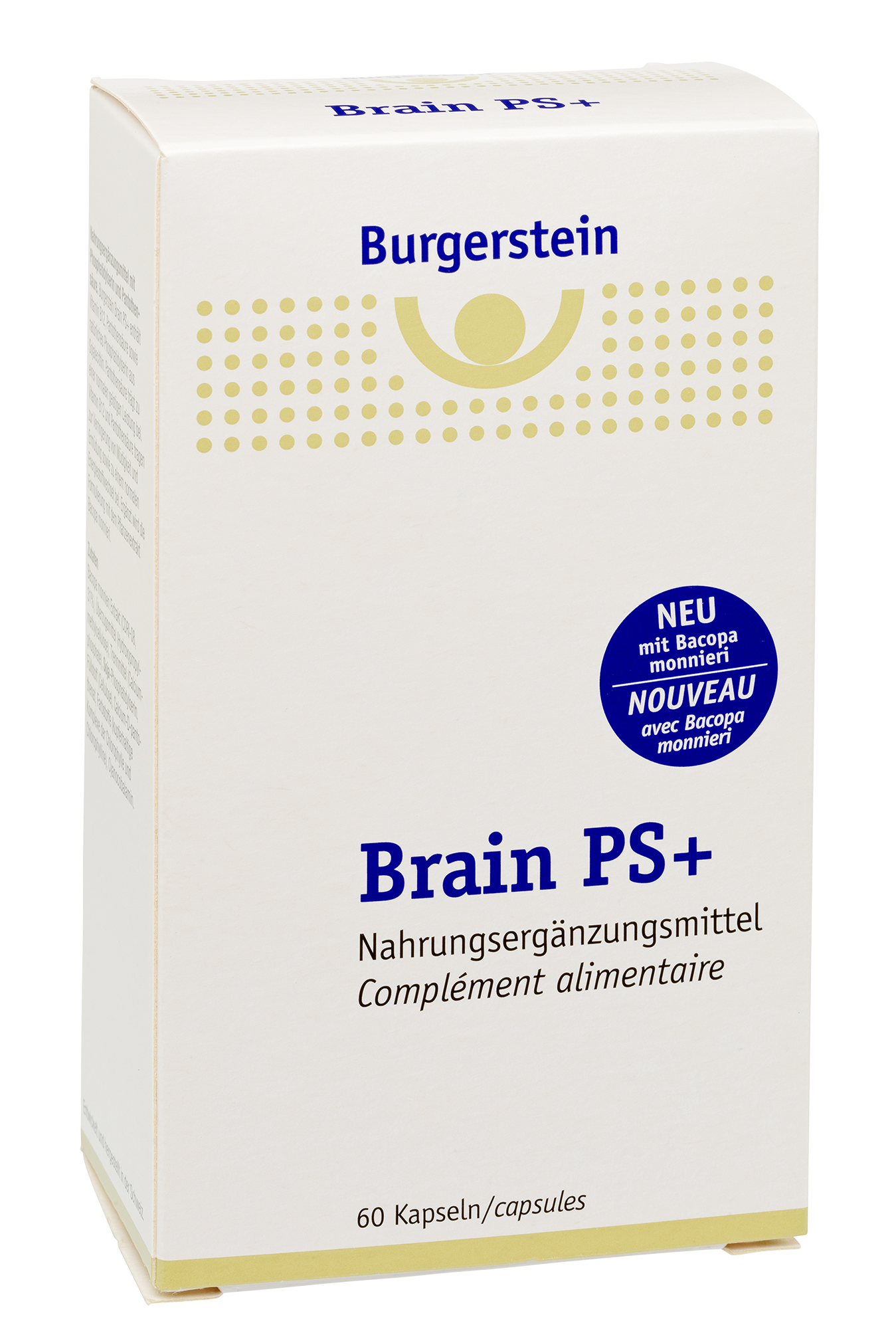Nutrients for a powerful brain
Depending on the stage of life, different demands are placed on mental fitness. In childhood and adolescence, the focus is on learning; in adulthood, mental performance is required at all levels simultaneously, be it at work, in further education or in family life. As we get older, maintaining brain performance becomes increasingly important. Brain performance depends on many factors and can be positively influenced by a healthy lifestyle.
Physical activity for good mental performance

Exercise and sport make a significant contribution to physical and mental health. Exercise produces signaling molecules in the brain and muscles, including brain-derived neurotrophic factor (BDNF). These molecules play an important role in the formation of new nerve cells and connections. This improves communication between nerve cells and thus supports memory.
How much exercise is needed?
Even small amounts of physical activity have a positive effect. This includes walking up and down stairs. Adults achieve the greatest health benefits with:
- 150 to 300 minutes of moderate endurance activity per week, e.g. walking or cycling
- at least 75 to 150 minutes of higher-intensity exercise per week, e.g. swimming, jogging or dancing
Nutrition for good memory and concentration
A varied and balanced diet forms the basis for good memory performance and concentration. Glucose is our brain's most important source of energy. In phases in which maximum concentration and mental performance are required, we can supply the brain with quickly available energy with glucose or chocolate, for example. However, the effect does not last very long, as the blood sugar level drops again quickly after a rapid rise. In order to supply the brain with energy in the long term, the focus should therefore be on whole grain products and a sufficient intake of fluids (preferably water or unsweetened drinks).
Important nutrients for the brain
Amino acids
Some amino acids, e.g. L-arginine, L-glycine, L-glutamine, L-methionine, L-phenylalanine, L-tryptophan, are required by the body as a precursor for the formation of messenger substances in the brain and can therefore have a positive influence on brain performance.
The intake of amino acids (in the form of mixtures) can support memory performance in phases in which high concentration is required, such as during exam preparations.
Bacopa monnieri
The plant Bacopa monnieri is also known commercially under the Indian name Brahmi from Ayurvedic medicine and is called "small fat leaf" in German. Studies suggest that Bacopa monnieri improves memory performance, retention and recall.
Bacopa monnieri is believed to influence the messenger substances in the brain and also has antioxidant and anti-inflammatory properties. It protects the brain from oxidative stress by neutralizing free radicals. As a result, it can slow down the age-related decline in brain performance.
Omega-3 fatty acids (EPA/DHA)
As a component of nerve cell membranes, omega-3 fatty acids contribute significantly to the normal development and function of the brain. For optimal support of brain function, omega-3 fatty acids should be taken on a long-term basis.
Phospholipids
Phosphatidylserine is a naturally occurring phospholipid that is found in particularly high concentrations in the brain and spinal cord. Due to its important role in the exchange of information between cells, it improves thought processes and memory function. Phosphatidylserine should be taken for at least four weeks to have a positive effect on memory.
Selected micronutrients
- B vitamins (B1, B6, B12 and folic acid) are important for the regeneration of nerve cells and for the transmission of signals in the brain. Vitamin B6 (pyridoxine) and B12 (cobalamin) are involved in the formation of messenger substances in the brain (neurotransmitters), which are necessary for communication between nerve cells. Vitamin B12 plays an important role in the formation of myelin, a protective layer around nerve fibers in the brain and spinal cord. Pantothenic acid (vitamin B5) contributes to normal mental performance. The need for pantothenic acid is increased during periods of high stress. Pantothenic acid plays a central role in energy metabolism and the normal metabolism of some neurotransmitters. An adequate supply of these vitamins is crucial for good memory performance.
- vitamin C plays an important role in the production of neurotransmitters, which help to transmit nerve impulses. Some of these neurotransmitters are adrenaline, noradrenaline and serotonin.
- vitamin E protects the fat-soluble components of the cell membrane in the brain.
- iron is an essential component of red blood cells, as it is part of hemoglobin, which transports oxygen to tissues, including the brain. In addition, iron is important for the optimal function of enzymes involved in the production and breakdown of neurotransmitters in the brain (e.g. noradrenaline, dopamine and serotonin). An adequate iron supply is therefore crucial for maintaining cognitive functions.
More tips to improve your memory

- New stimuli keep the brain cells active and the memory efficient. Exercise your brain by playing games, solving crossword puzzles, learning a new language, reading books or playing a musical instrument, for example.
- Make sure you get enough sleep, as sleep is important for brain regeneration.
- Try to reduce stress. Chronic stress can have a negative effect on brain function.
Summary
A healthy lifestyle with sufficient exercise and a balanced diet supports mental fitness in all phases of life. In addition to physical activity, certain nutrients such as omega-3 fatty acids, phospholipids and amino acids are also important for brain function. Micronutrients such as the B vitamins, vitamin C, vitamin E and iron also play a crucial role in good memory performance and concentration.
Literature: "Burgerstein Handbuch Nährstoffe" - Edition14


